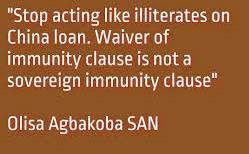By Tonnie Iredia
Bearing in mind that a constitution would be unwieldy if it is made to contain every type of provision, other laws, regulations and guidelines are allowed to provide further provisions that would illuminate the not too copious constitutional statements on a particular subject area. The Electoral Act is expected to handle such situations in matters of elections.
Painfully, the National Assembly, has since 1982, used every opportunity to produce a bastardized document for the nation. They have done this severally using inexplicable methods – the latest being what prolific television anchor, Seun Okinbaloye describes as ‘boju-boju’ strategy.




















